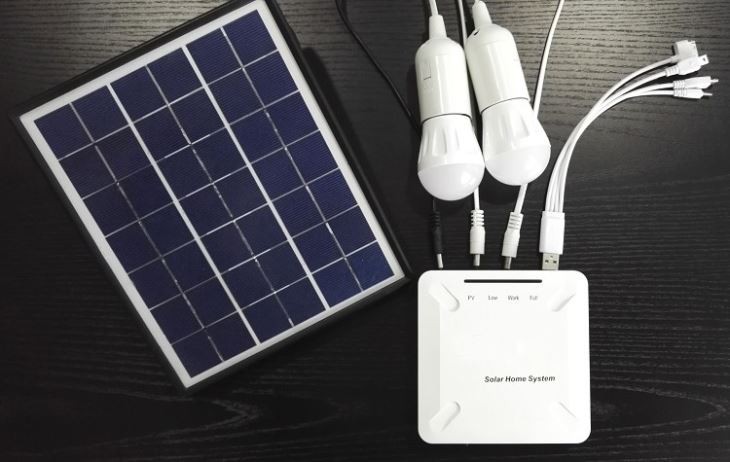As a solar fan supplier, I often receive inquiries from customers about the practicality and effectiveness of using solar fans in various settings. One question that has come up frequently is whether a solar fan can be used in a terrarium. In this blog post, I will delve into this topic, exploring the feasibility, benefits, and considerations of using a solar fan in a terrarium.
Understanding Terrariums
Before we discuss the use of solar fans in terrariums, it's important to understand what a terrarium is. A terrarium is a transparent container, typically made of glass or plastic, that is used to grow and display plants. Terrariums can be open or closed, and they come in various shapes and sizes. They are designed to create a self - sustaining ecosystem where plants can thrive with minimal maintenance.
Closed terrariums are sealed environments that mimic a miniature rainforest. They trap moisture, creating a humid atmosphere. Open terrariums, on the other hand, allow for more air circulation and are suitable for plants that prefer drier conditions.
The Role of Air Circulation in Terrariums
Air circulation is a crucial factor in the health of a terrarium. In a closed terrarium, without proper air movement, carbon dioxide can build up, and humidity can become too high. This can lead to the growth of mold and mildew, which can damage the plants. In open terrariums, adequate air circulation helps prevent stagnant air and can provide fresh carbon dioxide for photosynthesis.
A fan can help to improve air circulation in a terrarium. It can distribute heat evenly, prevent the formation of hot or cold spots, and reduce the risk of fungal diseases. However, traditional electric fans require a constant power source, which may not be practical or convenient for terrariums, especially those placed in remote locations or away from electrical outlets.
Solar Fans: An Ideal Solution
Solar fans offer a sustainable and eco - friendly alternative to traditional electric fans. They are powered by solar energy, which means they can operate without being connected to the grid. This makes them an excellent option for terrariums, especially those located outdoors or near a window where they can receive sunlight.


Benefits of Using a Solar Fan in a Terrarium
- Energy Efficiency: Solar fans use renewable energy from the sun, which is free and abundant. This not only reduces your electricity bill but also has a lower environmental impact compared to traditional fans.
- Portability: Since solar fans do not require a power cord, they can be easily moved around and placed in different locations within the terrarium. This allows you to adjust the air circulation according to the needs of your plants.
- Safety: Solar fans operate at low voltages and do not pose a risk of electrical shock. This is particularly important when using them in a moist environment like a terrarium.
- Cost - Effective: Once you have purchased a solar fan, there are no ongoing energy costs. Over time, this can result in significant savings compared to using an electric fan.
Considerations When Using a Solar Fan in a Terrarium
- Size of the Fan: It's important to choose a fan that is the right size for your terrarium. A fan that is too large may create too much air movement, which can damage delicate plants. On the other hand, a fan that is too small may not provide sufficient air circulation.
- Placement of the Fan: The placement of the fan within the terrarium is crucial. It should be positioned in a way that allows for optimal air circulation without directly blowing on the plants. You may need to experiment with different positions to find the best setup for your terrarium.
- Sunlight Availability: Since solar fans rely on sunlight to operate, your terrarium should be placed in an area where it can receive adequate sunlight. If the terrarium is placed in a shaded area, the fan may not function properly.
Our Solar Fan Products
As a solar fan supplier, we offer a range of high - quality solar fans that are suitable for terrariums. Our fans are designed to be energy - efficient, quiet, and durable. They come in different sizes and designs to meet the needs of various terrarium setups.
In addition to our solar fans, we also offer a variety of Mini Solar Lighting System and Home Solar Light Kit that can enhance the overall environment of your terrarium. Our Solar Linghting System provides additional light for your plants, especially in low - light conditions.
How to Choose the Right Solar Fan for Your Terrarium
When choosing a solar fan for your terrarium, consider the following factors:
- Fan Speed: Look for a fan with adjustable speed settings. This will allow you to control the amount of air circulation according to the needs of your plants.
- Solar Panel Efficiency: A high - efficiency solar panel will ensure that the fan receives enough power even on cloudy days.
- Noise Level: Since terrariums are often used for display purposes, you may want to choose a fan that operates quietly so as not to disrupt the atmosphere.
Conclusion
In conclusion, a solar fan can be a great addition to a terrarium. It can improve air circulation, prevent the growth of mold and mildew, and promote the health of your plants. With our range of solar fans and related products, you can create an optimal environment for your terrarium.
If you are interested in purchasing a solar fan or any of our other solar - powered products for your terrarium, we invite you to contact us for more information. Our team of experts is ready to assist you in choosing the right products for your specific needs. We look forward to the opportunity to work with you and help you create a thriving terrarium ecosystem.
References
- "The Complete Guide to Terrariums" by Smith, John. 2020.
- "Solar Energy: Principles and Applications" by Brown, David. 2018.
- "Plant Physiology" by Jones, Emily. 2019.